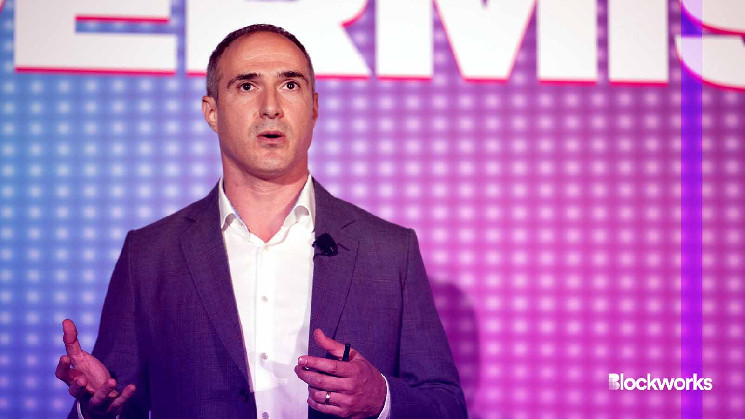Crypto infrastructure firm Fireblocks is the latest company aiming to ease institutional investors’ counterparty risk concerns following the collapse of centralized crypto giants like FTX.
Via a new product called Off Exchange, Fireblocks will let users lock funds in what it calls Collateral Vault Accounts (CVA), the company said Tuesday.
These accounts are on-chain multiparty computation (MPC) wallets that “programmatically lock and mirror assets” to the connected exchange, according to Stephen Richardson, Fireblocks’ managing director of financial markets.
Once traders transfer assets to a CVA, a credit is issued to the exchange. Crypto derivatives exchange Deribit is the first to integrate with the new offering.
Read more: FTX began to unravel one year ago today: A timeline
The credit can then be used for spot, margin or derivatives trading activities, and settlement occurs in real-time and on-chain. Once the CVA is rebalanced, traders can withdraw their assets to another venue, counterparty or internal wallet.
“Because the MPC wallets are on-chain, exchanges have complete transparency to monitor and validate client collateral and enforce risk management without taking custody,” he told Blockworks. “This approach protects traders’ principals by enabling them to retain shared custody of their assets in a segregated MPC wallet, and mitigates risk of exposure of funds being commingled in a custodial account or misappropriated by an exchange.”
Some providers use custodial solutions that pool traders’ assets in a commingled account, Richardson noted. In those cases, he said, settlement occurs off-chain via a sub ledger, and exchanges are sometimes required to lock funds in a third-party cold storage solution.
Luuk Strijers, chief commercial officer of Deribit, said in a statement that Fireblocks’ approach is used “to reduce client capital deposited at exchanges while providing our business with greater liquidity and transparency.”
Fireblocks is not the only crypto player who has sought to mitigate counterparty risk after FTX imploded last November. FTX founder Sam Bankman-Fried was found guilty earlier this month on charges including wire fraud, as well as conspiracy to commit fraud and conspiracy to commit money laundering.
More recently, the US Securities and Exchange Commission alleged in a lawsuit that Kraken commingled customer crypto assets with its own. The exchange said at the time: “We disagree with the SEC’s complaint against Kraken.”
Bitcoin asset management platform Onramp last month launched a multi-institution custody product that divides key-holding responsibilities to three institutions. Two of the three keys are needed to move the funds at the direction of the end client.
Custodia Bank earlier this month debuted a custody model in which a customer delegates crypto storage to a custodian that stores the assets on-chain.
 blockworks.co
blockworks.co
